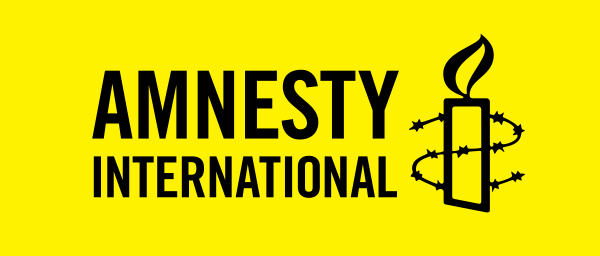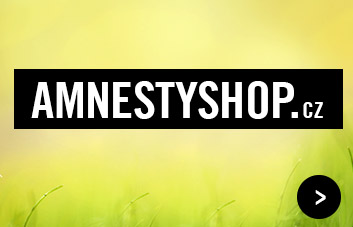 Urgentní
Urgentníakce
© Anton Naumlyuk
Ukrajinský filmař Sencov a aktivista Kolčenko nespravedlivě odsouzeni!
Případ
Zastavte mučení Svoboda slova a vězni svědomí Ukrajina publikován 10.8.2015
Filmový režisér Oleg Sencov byl odsouzen na 20 let, ekolog a proti-fašistický aktivista Oleksandr Kolčenko dostal trest 10 let vězení po nespravedlivém procesu u vojenského soudu v Rusku. Oba jsou ukrajinští občané a čelí obviněním z "terorismu", která pramení z jejich kritiky ruské okupace Krymu.
Ukrajinský režisér byl na okupovaném Krymu zadržen ruskou Federální bezpečnostní službou (FSB) v květnu 2014. Sencov si stěžoval, že ho po zadržení agenti FSB mučili. Dali mu přes hlavu igelitovou tašku a dusili ho, až omdlel. Filmařův právník, Dmitrij Dinze, popsal, jak FSB s jeho klientem jedná. „Tři hodiny se z něj snažili vymlátit přiznání. Bili ho po zádech, po nohou.“ Kromě jiného informoval právník i o tom, že mu vyhrožovali znásilněním bezprostředně poté, kdy mu sundali kalhoty.
Společně s dalšími ukrajinskými zadrženými byl později převezen do Moskvy. Sencov se zúčastnil pokojných demonstrací proti ruskému zásahu na Krymu, na Euromajdanu v ukrajinském Kyjevě vystupoval jako člen protestní skupiny motoristů „AvtoMaydan“. Přátelé a rodinní příslušníci, kteří mluvili s Amnesty International věří, že obvinění jsou politicky motivována a mají spojitost s pokojným aktivismem.
Po zahájení soudního procesu, který probíhá v Rostovu na Donu, obvinil vládní prokurátor Sencova, že vytvořil teroristickou organizaci na příkaz ultranacionalistické strany Pravý sektor. Podle ruských úřadů byl Sencov členem této organizace (ta byla v listopadu 2014 postavena mimo zákon). Režisér členství ve straně Pravý sektor odmítl. Stejně tak organizace vydala prohlášení, že Sencov není a nikdy nebyl jejím členem.
Ruské úřady Sencova navíc obvinily z úmyslného založení požáru kanceláří vládnoucí strany Jednotné Rusko. Nařkli ho také z přípravy vyhodit do povětří pomník Vladimíra Iljiče Lenina a památník s věčným plamenem. Dva jeho údajní komplici už dostali sedmileté tresty. Sencova bude soudit vojenský soud a hrozí mu až doživotní trest. Muž všechna obvinění popírá a celý proces považuje za vykonstruovaný a politicky motivovaný. Společně se Sencovem je souzen Oleksandr Kolčenko. Tomu hrozí až dvacet let vězení.
K propuštění Sencova opakovaně vyzývá řada mezinárodních organizací, včetně Amnesty International. Při své návštěvě Ruska v září 2014 na případ zadrženého režiséra upozornil generální tajemník Amnesty International Salil Shetty. O režisérovo propuštění v hromadné výzvě požádali filmoví režiséři Pedro Almodóvar, Krzysztof Zanussi, Andrzej Wajda a Nikita Michalkov. K jeho propuštění vyzvaly i filmové svazy na Ukrajině a v Rusku. Prohlášení žádající Sencovovo propuštění zveřejnili i čeští filmaři během Mezinárodního filmového festivalu v Karlových Varech. Letos k němu Moskvu vyzvalo i české ministerstvo zahraničí.
Aktuality
Článek publikován 7.9.2019
Oleg Sencov je volný!
Článek publikován 31.8.2019
Dojde k výměně zajatců a propuštění Sencova na svobodu?
Rusko a Ukrajina si pravděpodobně vymění vězně. Mohl by mezi nimi být i nespravedlivě uvězněný ukrajinský filmař Sencov. Výměna se ale zatím pozdržela.
Článek publikován 13.7.2019
Sencov oslavil narozeniny ve vězení
Ukrajinský režisér Oleg Sencov dnes slaví 43. narozeniny.
Článek publikován 8.10.2018
Oleg Sencov ukončil hladovku
Ukrajinský režisér Oleg Sencov se rozhodl ukončit protestní hladovku.
Článek publikován 10.8.2018
Rusko odmítlo Amnesty International přístup k Olegovi Sencovovi, který drží hladovku už přes 80 dní
Sencov, Ukrajinský režisér odsouzený k 20. letům vězení za údajný terorismus. Pomozte mu podpisem.
Článek publikován 8.6.2018
Rusko musí propustit ukrajinského filmového režiséra Olega Sencova
Amnesty International žádá o okamžité propuštění ukrajinského filmového režiséra Olega Sencova.
Článek publikován 7.6.2018
Oleg po třech týdnech hladovky zhubl 8 kilo a podle svědků není v dobré kondici
Článek publikován 24.5.2018
Sencov drží hladovku - posílejte solidární dopisy
Oleg Sencov se nevzdává a i nadále bojuje za propuštění všech ukrajinských politických vězňů.
Článek publikován 11.4.2016
Oleg Sencov a Oleksandr Kolčenko převezeni do vězění
Článek publikován 18.1.2016
Ocenění Olega Sencova Trilobit
Amnesty International převzala 16. 1. Mimořádnou cenu poroty v rámci cen Trilobit 2016 v Berouně.
Článek publikován 25.8.2015

